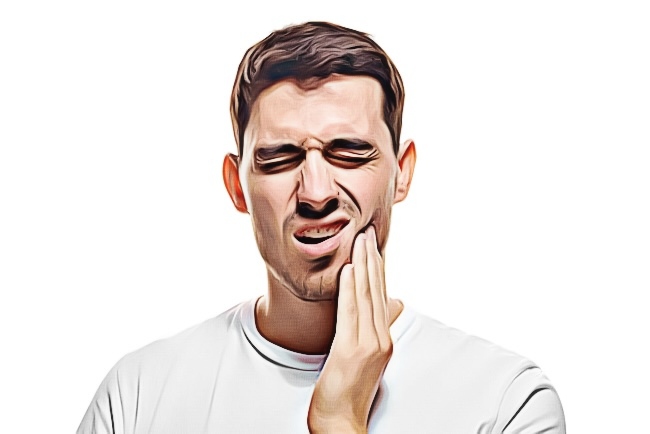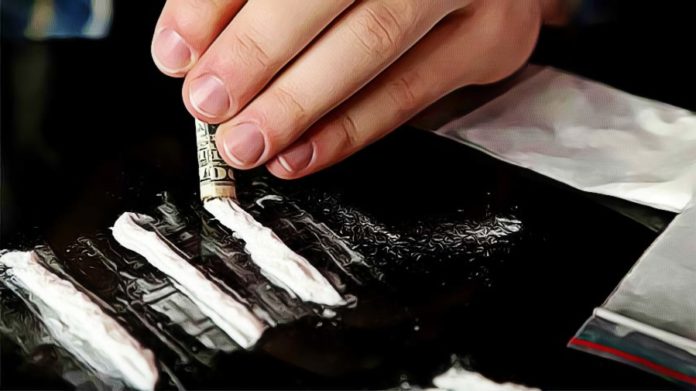Cocaine comes in second as the most trafficked illegal substance worldwide. It is highly addictive and only takes one or a few uses to make the person dependent on the drug.
Cocaine may seem like a fun recreational drug, but it can cause a lot of damage to a life. If you think someone you love is on cocaine, it’s important to be able to know the symptoms, one of them being coke jaw.
Read on to understand the signs, symptoms, and treatment of coke jaw.
What Is Coke Jaw?
Cocaine is a powerful stimulant that can be ingested, rubbed on the gums, or snorted up the nose. When taken, cocaine speeds up the entire body. Side effects of cocaine use include jaw clenching and muscle twitching in the face.
A person with coke jaw will have visibly noticeable grinding and movements of their mouth from side to side. This is caused by drug use and can lead to other issues within the mouth.
What Are the Symptoms of Coke Jaw?
Here are several symptoms of coke jaw:
- Bruxism
Bruxism is a disorder in which people grind their teeth. This can happen day or night; many people do it without realizing it. People who use cocaine often grind their teeth more than usual. Excessive Coke consumption can lead to several dental problems, such as worn-down enamel, cavities, and brittle or broken teeth. In addition, Coke consumption is also a leading cause of jaw pain.
- Periodontitis
Some people choose to rub cocaine directly onto their gums instead of ingesting it, as the effects of the drug will be felt much faster. This is because any mucus cavity will act as an accelerant for the drug. When you put a drug on your gums, you risk causing inflammation. This inflammation can lead to periodontal disease, a serious condition that damages the tissues that support our teeth. Cocaine causes the bone and tissue beneath our teeth to be absorbed. This causes our gums to recede and our teeth to become loose and fall out.
- Perforation of Oral Palate
Cocaine is often snorted through the nose, constricting blood vessels that supply oxygen to the nasal cavity. Necrosis is a condition where the cells in the septum can no longer sustain themselves and die. When this happens, the septum deteriorates. The perforation of the oral palate is when the roof of the mouth starts to sink in, making it difficult for the person to swallow, eat, and even speak.
- Dry Mouth
Cocaine use can lead to a decrease in saliva production, which can then cause Xerostomia (dry mouth). This may not seem serious, but chronic dryness of the mouth can lead to complications such as tooth decay, bleeding gums, and gum disease.

Short-Term Effects of Cocaine Use
As the effects of cocaine wear off, people may feel tired and depressed. Their appetite may increase, leading them to eat more. They may also need to take more of the drug to avoid these negative feelings.
- Loss of appetite
- Contracted blood vessels
- Anxiety and paranoia
- Dilated pupils
- Increased heart rate, blood pressure, body temperature
- Hyperstimulation
- Bizarre, erratic, sometimes violent behavior
- Disturbed sleep patterns
- Nausea
- Increased rate of breathing
- Tactile hallucination that creates the illusion of bugs burrowing under the skin
- Hallucinations, hyperexcitability, irritability
- Intense drug craving
- Intense euphoria
- Depression
- Convulsions, seizures, and sudden death from high doses (even one time)
- Panic and psychosis
Long-Term Effects of Cocaine Use
Cocaine use can interfere with the brain’s dopamine production, causing the brain to become accustomed to the higher dopamine levels produced by the drug.
Once someone begins abusing cocaine, they may quickly develop a dependency on it. This can cause them to feel depressed and anxious without it and lead to intense cravings. To avoid these withdrawal symptoms, people may continue to abuse cocaine even when it no longer makes them happy. This alters the brain’s motivation and reward circuitry, making it difficult for someone to quit using the drug.
- Permanent damage to blood vessels of the heart and brain
- Destruction of tissues in the nose if sniffed
- Increased frequency of risky behavior
- Sexual problems, reproductive damage, and infertility
- Auditory and tactile hallucinations
- Respiratory failure if smoked
- Disorientation, apathy, confused exhaustion
- Infectious diseases and abscesses if injected
- High blood pressure, leading to heart attacks, strokes, and death
- Irritability and mood disturbances
- Malnutrition, weight loss
- Liver, kidney, and lung damage
- Severe depression
- Severe tooth decay
- Delirium or psychosis
What Is the Comedown?
The comedown is the feeling of the effects of a drug gradually wearing off. This happens after a period of intoxication or coming down from the drug high. The experience varies depending on how much drug was taken, how long the person was using it, and how often they used it.
The experience of coming down from a drug can vary depending on how intense the high was and how the person felt while on the drug. If the high was intense and made the person feel uncomfortable, anxious, or delusional, the comedown can feel relatively pleasant as it returns them to reality. However, for others, the comedown can be a disappointing sensation, signaling a return to reality and perhaps triggering further drug use.
If you start to feel ill while coming down from a drug, it might be because of medical complications that are happening in reaction to the drug. If these symptoms don’t go away, it’s important to see a doctor to be evaluated for emotional or psychological symptoms. This is especially important if you’re having thoughts about hurting yourself or someone else or having psychotic symptoms, like hearing voices.
Be sure to communicate with your doctor about any medications you are taking, including the dosage and frequency. It is always best to catch and treat problems as early as possible to avoid further complications.
Occasional use of cocaine can lead to more serious side effects and health issues, such as the following:
- Lung damage
- Loss of smell, nosebleeds, runny nose, and trouble swallowing, if you snort it
- Mood problems
- Bowel decay if you swallow it
- Headaches
- Sexual trouble
- Heart disease, heart attack, and stroke
- HIV or hepatitis if you inject it
- Convulsions and seizures
Cocaine addiction can cause intense cravings for the drug. The more you use cocaine, the more your brain will become used to it, and you will need a stronger dose to feel the same high. This can lead to a dangerous addiction or overdose.
Taking large doses of a drug over a long period can cause changes in your brain’s chemistry. Your body and mind may begin to depend on the drug, making it difficult to think, sleep, or remember things. You may also have a slower reaction time and be at risk for more heart, lung, and stomach problems.
Conclusion
Coke jaw is a debilitating and potentially fatal condition that affects people working in foundries and other environments exposed to high heat and fumes. The condition is caused by the body’s inability to metabolize the tetracycline antibiotic used to treat infections properly. Coke jaw causes the body to break down the tetracycline into a toxic compound for the bone and teeth. Treatment for coke jaw typically involves surgery to remove the affected tissue, but the condition can be prevented by wearing protective clothing and using appropriate ventilation in work areas.
Sources:
https://nida.nih.gov/publications/research-reports/cocaine/what-are-long-term-effects-cocaine-use
















